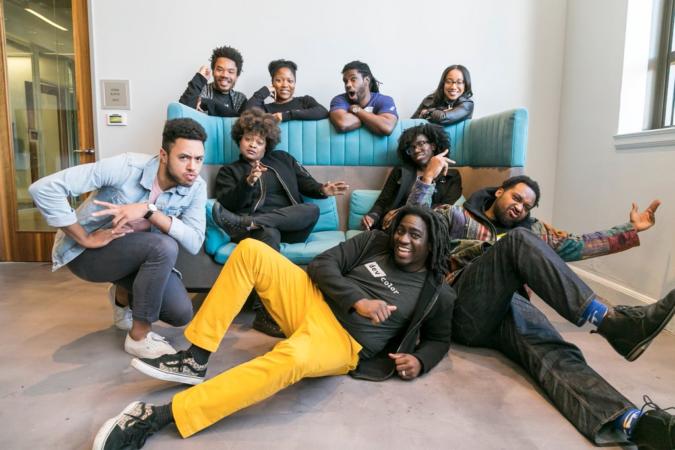Tech nonprofit /dev/color just announced the induction of the largest “Squad” of Black engineers into their community, growing its membership from 225 to 370. They have also unveiled plans to operate cohorts in two new cities this year.
/dev/color convenes a visible force of Black software engineers to uplift and empower one another within the overwhelmingly white tech industry. Nearly four years old, the organization began with just 11 members in San Francisco, and now has chapters in Atlanta, Seattle, and New York City.
Their flagship A* program offers professional engineers a year-long membership including monthly meetings with peer groups (called “Squads”), access to exclusive events, and tools to design an individualized career roadmap.
“It’s rare for folks to take retention into their own hands,” said Lajuanda Asemota, Interim Executive Director of /dev/color. “It’s not just learning and development opportunities that keep people at companies and in the industry. It’s also their sense of belonging and sense of confidence.”
The conversations around tech diversity often centers the acknowledgment that the industry is made up of nearly 8 percent Black workers and recruitment strategies (or lack thereof) have failed to address this gross underrepresentation, though numerous organizations are working to remedy these faults.
Changing the narrative around diversity, equity, and inclusion is part of /dev/color’s work to ensure these connections exist beyond this organization.
The nonprofit reports that as a result of its A* Program, over 70 percent of members received an increase in compensation in 2017. Of that, 34 percent received a salary increase of 15 percent or more.
“We’re contributing to intergenerational wealth and community growth,” said Asemota. “Folks are able to achieve their goals and grow their careers.”
Black tech workers are the lowest paid in the tech sector, according to a 2018 report from Hired. Across the industry, Black employees are paid the least at $130,000, an average of $6,000 less than their white counterparts.
The Women in the Workplace 2018 study published by LeanIn.org and McKinsey & Company found that Black women are asking for promotions and raises at the same rate as their white counterparts, but are not getting the same outcomes.
“The diversity in tech conversation has gotten a little bit repetitive,” said Asemota. “I’m really hopeful that people will capitalize on the history of the work, and really think critically about how to do things creatively that will actually have an impact.”

